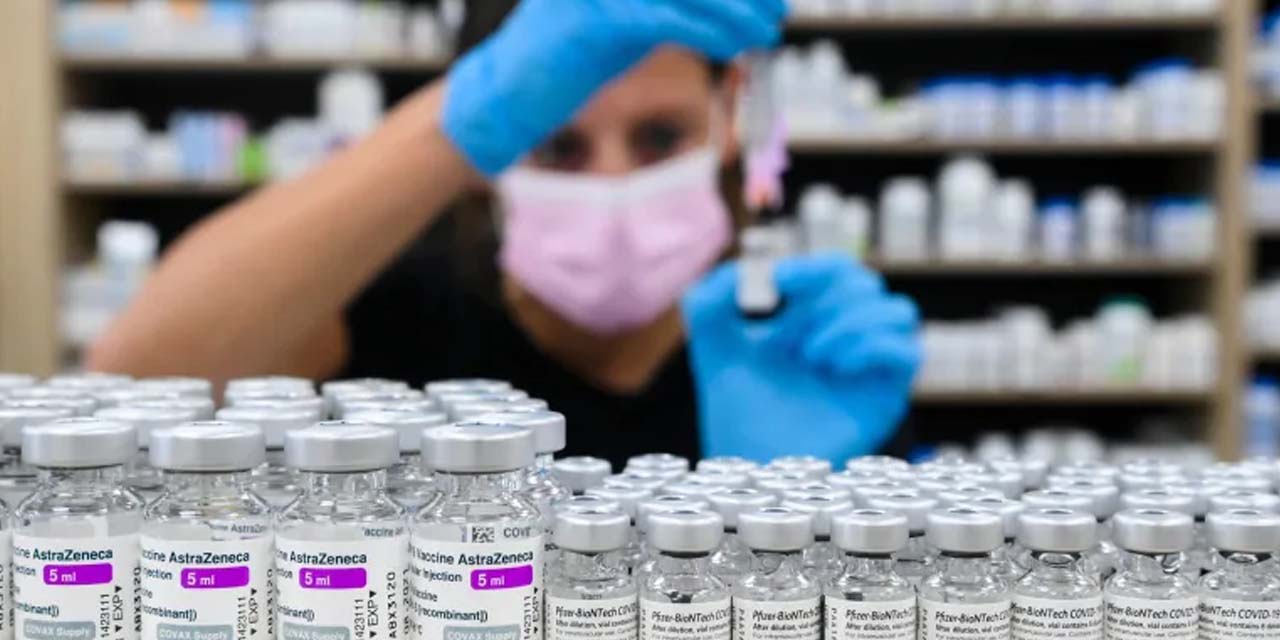Tujoromajo Kasuto
Minister of Health and Social Services (MoHSS), Kalumbi Shangula, says the country does not have a need for mixing Covid-19 vaccines.
“Currently we have one vaccine and give only what we have, we continue doing as we have been doing up to now,” states Shangula further questioning “who said that mixing is more efficient, where is the medical evidence that mixing is much more powerful than taking the one vaccine.”
According to media reports, countries in Europe, namely Spain, Germany, Canada and the United Kingdom, have implemented a mixed dosage approach, where people get the first dose of one vaccine (AstraZeneca) and get a different one (Pfizer/ Moderna) for the second dose for more efficiency.
On engaging with Windhoek Observer, Center for Disease Control and Prevention (CDC), Acting Director in Namibia, Steven Hong, says that in the US, CDC guidance for America is that Covid-19 vaccines are not interchangeable, at this point. For instance, if one received a Pfizer-BioNTech or Moderna COVID-19 vaccine, they should also get the same product for their second shot.
Hong further informs that, “the CDC allows for mixing in exceptional situations like if the specific vaccine used for the first shot cannot be determined or if the vaccine used for the first dose is no longer available. But it is preferable to delay the second dose up to six weeks following the first dose in order to administer the same product rather than administer a mixed series using a different product.”
According to Hong the safety and effectiveness of mixing doses with different vaccines has not been well studied, but there is currently ongoing studies with various favorable results emerging.
The CDC Acting Country Director reiterates that, based on Namibian government policy, “you should have the same vaccine for your first and second dose. Policy decisions are based on data and expert guidance from organisations such as WHO and CDC, and countries are constantly reviewing the data available.”
The controversy of mixing vaccine doses emerged in the country over the past week after Shangula, on Tuesday 13 July announced the closure of all vaccination sites due to a lack of vaccines in the Khomas Region.
The vaccination sites resumed today 19 July 2021, however according a MoHSS public notice on the availability of vaccines on 15 July, about ten districts in the country only have the Sinopharm vaccine while AstraZeneca which is expected to arrive this week is out of stock.
Meanwhile, the British Broadcasting Corporation (BBC) Medical Editor, Fergus Walsh, in an article stated that the earliest outcomes of the mix and match vaccine trial are substantially inspiring and present stimulating possibilities for an additional vaccine dose needed to “boost” immunity.
“Mixing first and second doses of the Oxford-AstraZeneca and Pfizer-BioNTech vaccines yielded strong immune responses. Indeed, every combination of dosing – Pfizer/Pfizer, AZ/Pfizer or Pfizer/AZ produced higher antibody and cellular responses than AZ/AZ.”
In addition, the World Health Organisation’s (WHO), Chief Scientist, Soumya Swaminathan, in a social media post on 12 July cautioned that, “individuals should not decide for themselves, public health agencies can, based on available data. Data from mix and match studies of different vaccines are awaited – immunogenicity and safety both need to be evaluated.”
This comes after she stated at WHO media briefing for Covid-19 the day same day that, “there is limited data on mix and match, there are studies going on, we need to wait on that and maybe it will be a very good approach.” The statement was misunderstood and misquoted by various media houses as “WHO warned against mixing and matching COVID-19 vaccines”, whilst WHO warned people against making personal choices to get a different vaccine for their second dose.




